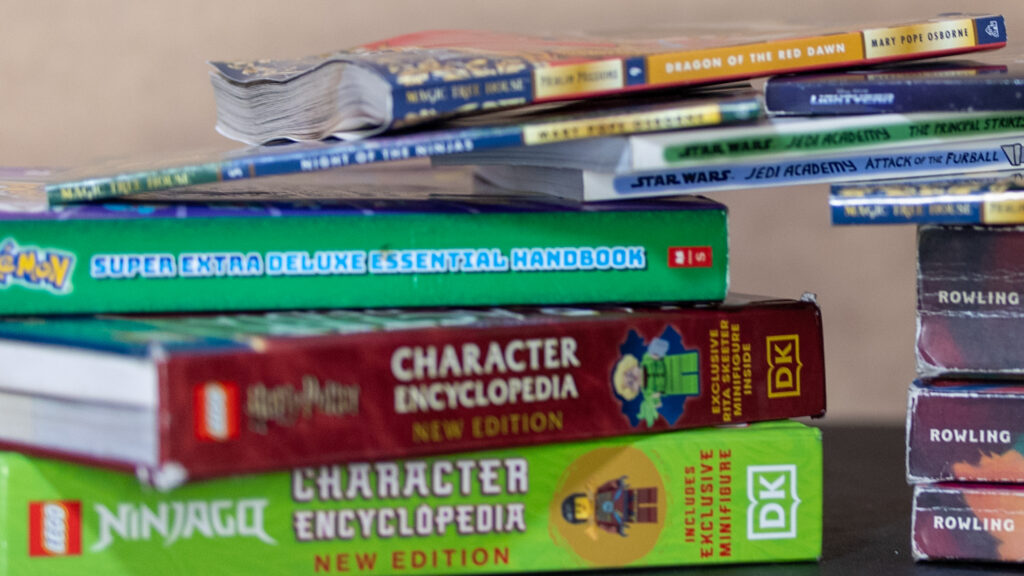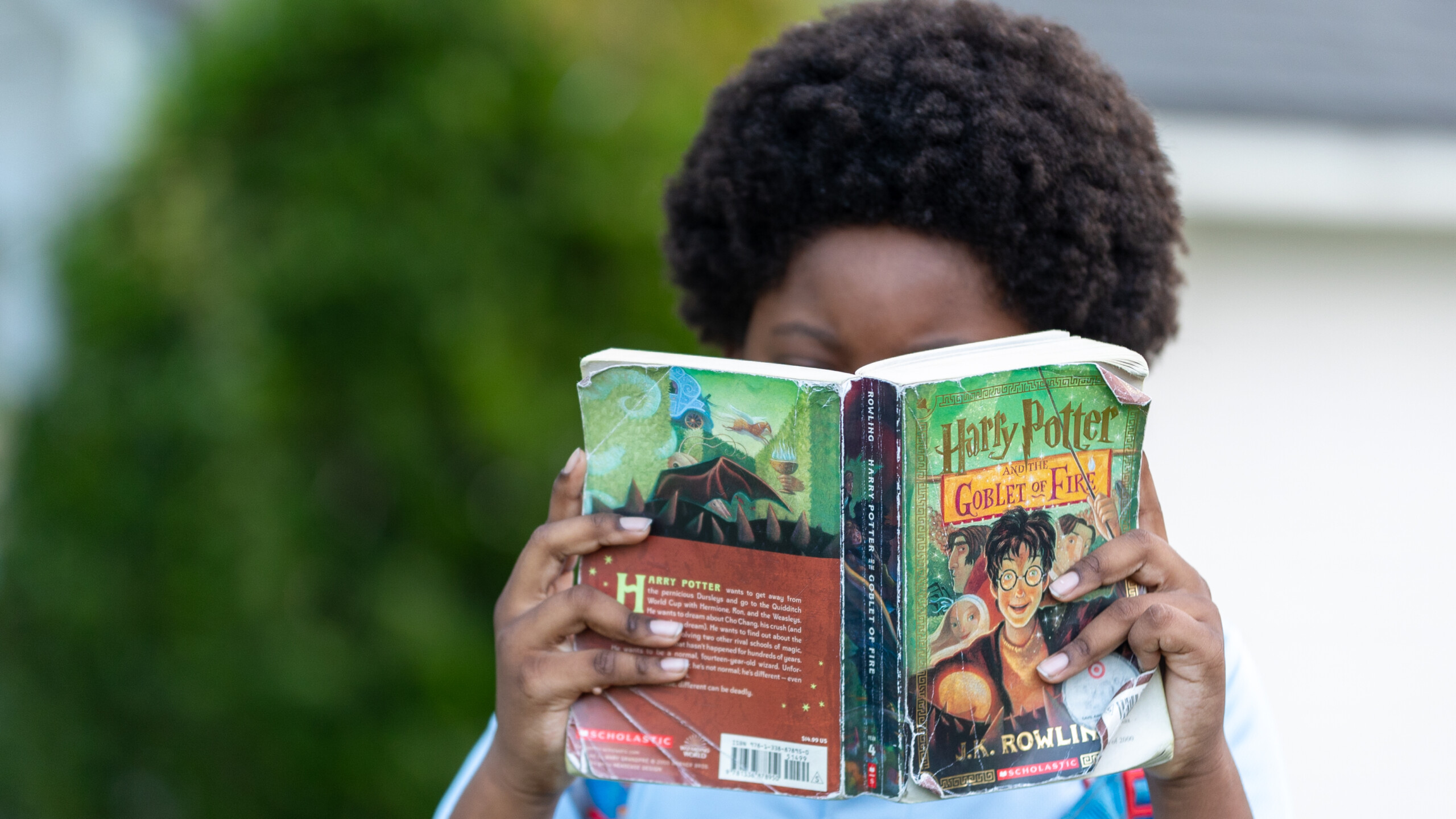Duval County’s next superintendent will enter a district that’s committed to raising its student literacy rate, as third graders here not only read proficiently at a lower rate than surrounding counties, but all of the other big metropolitan districts across the state.
It’s a problem that past superintendents, the School Board, current and former mayors as well as nonprofit leaders have tried to solve without much to show for their efforts in terms of test scores. In the most recent academic year, just 46% of Duval County third-graders were proficient at reading, according to Florida Assessment of Student Thinking (FAST) English Language testing. That percentage was lower than the statewide average (50%), and lower than every other Florida county with at least 10,000 third graders.
The Florida Department of Education expects third-graders to not only read text but comprehend what it means and understand how meaning can develop through text. They are also expected to conduct their own research.
The lag in third-grade reading proficiency continues to dog the school district as research shows that students who are proficient readers by the end of third grade have a higher likelihood of graduating high school on time, as well as succeeding “in life and the workforce.”
The problem has recently been getting worse: The portion of Duval County third-graders reading below proficiency levels increased by 5% from 2017 to 2022.
New expectations
And the district is bracing for scores to potentially fall this year, partly because of newly implemented evaluation standards, after Gov. Ron DeSantis signed an executive order in 2019 that eliminated Common Core standards in the state. This year's third-grade students also started kindergarten during the height of the pandemic in August 2020.
Brandie Berry, the director of K-12 literacy for Duval County Public Schools, says this is the first year that the state of Florida will use the new standards, called the Benchmarks for Excellent Student Thinking or B.E.S.T., to evaluate student progress. (Students first took the new test last year, but schools still used the old standards while evaluating the results.)
This month, the Florida Board of Education is expected to approve new “cut scores” for the new English language arts and math tests — the minimum score for placement in each of five achievement levels. Students who are at Level 3 or higher in English language arts are considered proficient readers.
“If the state Board of Education approves my recommendations, Florida will adopt the most rigorous expectations we have ever set for our students,” Education Commissioner Manny Diaz said last month. “I have complete confidence in our students and teachers to rise to the challenge once again.”
This year is the first time districts will institute “progress monitoring” testing in English language arts and math at intervals throughout the year. In Duval County, the first testing period concluded this week. The second test, early in 2024, will help guide teachers and parents on needed improvement before students take end-of-year tests, which determine student promotion and school grades.
With the more rigorous standards in place, Berry says, “We will see those scores bounce back and continue to grow as students get multiple years with the standards and this curriculum.”
Pursuing phonetics proficiency
This year, Duval Schools is using a new phonics curriculum from the University of Florida Literacy Institute (UFLI) for students in kindergarten through second grade.
Berry says the new phonics curriculum will also be used to help students in third, fourth and fifth grades get to grade level. It was initially introduced in November 2022 in schools that especially needed a literacy lift.
UFLI Director Holly Lane worked with district officials to implement the phonics curriculum that has students decode words by sounding them out, then helps them make sense of what they just read.
“Literacy is a complex beast,” Berry says. “It’s never just one thing. We have gotten really intentional this year with our professional development for teachers.” This year, the district added six additional hours of phonics training for teachers.
Another piece to the literacy puzzle is increasing educators’ “data literacy” through the progress monitoring process. So, beyond whole-class instruction aimed at ensuring no one is left behind, teachers are expected to use assessment data to make personalized instructional decisions.
Berry says, “At the end of the day, we know that every learner’s pathway is unique. We have to know the ins and outs of every child.”

‘20 minutes a day’
“People just see these numbers and it seems like there is nothing we can do about it," says Jacksonville Public Education Fund President Rachael Tutwiler Fortune. “But, if we have a more sophisticated understanding, then I think it really helps to inspire people to take action and really understand the work that needs to be done.”
Fortune, a Jacksonville native and DCPS parent herself, leads the nonprofit that counts helping to raise third-grade reading scores among its priorities.
For the past two years, JPEF has been a member of the Read Jax collaboration with the school district, the city of Jacksonville’s Kids Hope Alliance, and other nonprofits. (Editor’s note: Jacksonville Today publisher WJCT Public Media is among the Read Jax education partners.) The program's aim is to encourage young children to read at least 20 minutes a day outside of school. Fortune says reading for 20 minutes — whether it’s books, comics or religious texts — enhances vocabulary and reading comprehension skills.
“It’s a call to action that we can all participate in,” Fortune says. “Imagine if we, as adults, modeled that for the kids in our lives. And, if every child who is connected to an adult — whatever role that adult plays — we, truly, believe we would see outcomes improve at a rate that we have never seen in this city.”

Fortune, Berry and Rob Kelly all agree there the district has renewed its emphasis on literacy since the onset of the pandemic. Kelly is the CEO of READ USA, a Jacksonville-based nonprofit aimed at closing literacy gaps across the country by emphasizing teachers’ professional development.
“Providing high-quality professional development is something…I know Duval County leaders know is important,” Kelly says. “They do not have the funding to provide quality professional development to the thousands of teachers in the district who need it.”
Classroom conundrums
Duval County Chief of Schools Scott Schneider recently acknowledged the district’s academic shortcomings during a joint meeting of the School Board and Jacksonville City Council in August.
“It doesn’t matter what curriculum you have,” Schneider said at the Aug. 3 meeting. “It doesn’t matter what new resources you have. The key element that moves student performance is highly effective teachers. That’s our guiding principle there.”
Another challenge, Schneider says, is rising absenteeism that has increased since the pandemic. In the 2022-23 academic year, more than 36,000 students missed more than 20 days of school.
Ultimately, he said, the most important data point is the graduation rate.
“In order to graduate, that gatekeeper is that final test. It does include reading. They have to meet that expectation at that time,” he said.
While 90% of Duval students are graduating on time, the district’s goal is to be the best of the seven urban districts in Florida.
Uneven reading rates
When it comes to third-grade reading scores, Duval County’s highest performing elementary schools are in wealthier areas. For one: 93% of third graders at Jacksonville Beach Elementary were proficient in reading last year.
Rounding out the top performers, five other schools saw at least 80% of their third grade students reading proficiently last year. One was among the highest performing charter schools in the state, and two were magnet schools. Three of the traditional public schools rounding out the top performers were in ZIP codes where about 1-in-5 households had incomes over $100,000.
The schools with some of Duval County’s lowest literacy proficiency scores in the 2022-23 academic year hailed from high-poverty ZIP codes on the Eastside and in Northwest Jacksonville.
The only ZIP code with schools in both the top six and bottom six was 32205, which spans from Riverside and Avondale through Normandy and other parts of the Westside. Fishweir Elementary (83% in 2023) pulls students from the Fairfax and Avondale neighborhoods. Meanwhile, Wayman Academy of the Arts (16% in 2023) in Hillcrest is one of Duval County’s oldest charter schools.
As JPEF noted in a 10-page brief in 2022, “Student literacy is inequitable across the district. Schools with higher percentages of Black and Latine students were more likely to show lower scores on the assessment.”
Fortune says that research, as well as conversations she with groups across Jacksonville and her lived experience of growing up in under-resourced areas, indicate literacy help is most needed in high-poverty areas.
“We haven’t done a good enough job there,” Fortune says, referring to the entire Jacksonville community. “The data bears that out.”
Duval’s third-grade reading scores have remained stubbornly below those of neighboring districts and peer districts across Florida. In the three academic years prior to the pandemic's testing pause, 51% (2017); 50% (2018), and 51% (2019) of third-graders were proficient in reading. In the three academic years since, the rate inched downward from 51% (2021) to 47% (2022) and 46% (2023).
New worlds on the horizon
Additional help for Duval’s youngest students might arrive directly in mailboxes.
The New Worlds Reading Initiative is a partnership between the Lastinger Center for Learning at the University of Florida and book publisher Scholastic that mails age-appropriate books in subjects that students select directly to their home.
Elementary students who are not reading on grade level and VPK students who have not met benchmarks are eligible.
Shaunte Duggins, associate director at the New Worlds Reading Initiative, says literacy advancement must be a holistic approach.
“It’s not just putting on a Band-Aid on in third grade and saying, ‘It’s important to read on grade level,’” Duggins says. “We need to start as early as possible and as soon as possible to help kids fall in love with reading. Find something they are passionate about and ensure families are partners. They are truly their child’s first teacher.”
She says that of the 62,000 students enrolled in Duval County elementary schools last year, 49,000 were eligible to receive free books from the initiative. Parents and guardians can sign up here.
Duggins says planting the seed in children’s minds that they are readers at a young age will bear fruit by the time they are third graders.
“If it’s creating a grocery list with a child, looking at things on a cereal box, looking at environmental print. There are a number of ways that families knowingly or unknowingly are building literacy in their children. It’s important to recognize that and build on that,” she says.
An ongoing challenge
Literacy or a lack of funding for literacy programs was mentioned as one of the top challenges the next superintendent faces by more than a dozen respondents to the district’s parent survey this summer as part of its superintendent search.
Barbara Darby, the former president of the Florida State College at Jacksonville North Campus who retired after 37 years in higher education, says it’s not a question of whether students can learn. The question that should be answered is how the next superintendent can lead the district to respond to its students.
“There should not be an achievement gap, but there is one. There should not be a literacy gap, but there is one. There should not be performance concerns between schools in one area versus another, but there are,” she says.
“We need a leader who is going to help all of our students forward to succeed.”
This article is part of Jacksonville Today’s superintendent search series looking at big issues the district’s next superintendent will face.
See also: Duval school district braces for 50% uptick in private school vouchers this year and Duval considers cutting magnet school bus routes, other cost-saving options.







